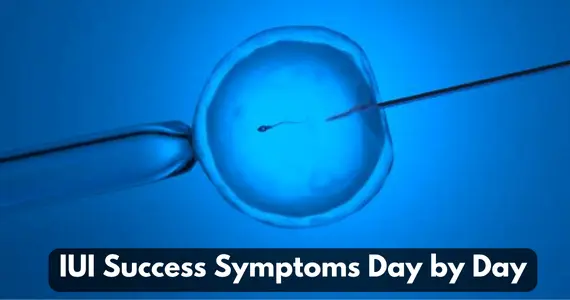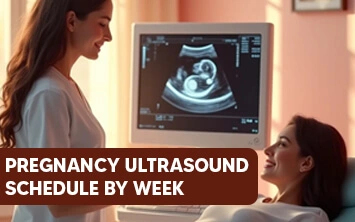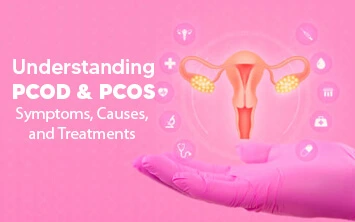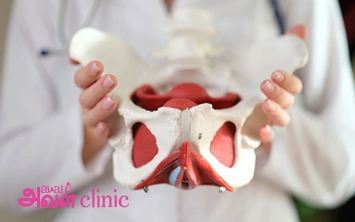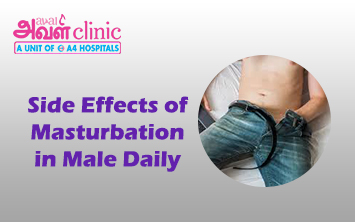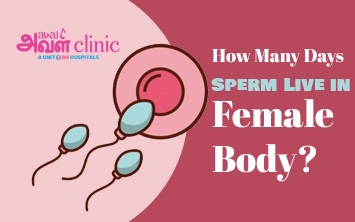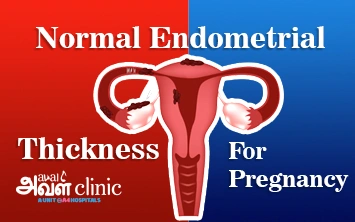Published on: March 28, 2025
Author: Admin
When it comes to fertility treatment, it is quite natural for couples to have an expectation for a successful pregnancy. They also feel anxious and stressed about the outcome. The wait time in such scenarios seems to feel too long and frustrating. Having an adequate knowledge of what will happen after the IUI procedure, and iui success symptoms day by day can help you give some confidence and peace of mind. This also helps couples to navigate the process without any hassle.
This blog can keep you well-informed and help you recognize the symptoms of successful implantation after the treatment.
IUI Success Symptoms Day by Day
| Day | Symptoms | Reasons | Guidance |
|---|---|---|---|
| Day 1-2 | You might experience a mild cramp or discomfort. | This may happen from the procedure. | It is suggested to not lift any weights during this period. |
| Day 3-5 | Mild cramping, the feeling of bloating, and the spotting may persist. | If fertilized, the embryo may have started to implant in the uterus. | Stay patient and positive. |
| Day 6-9 | Morning sickness, sore or tender breasts, increased fatigue, and changes in cervical mucus may be experienced by some women. | The symptoms may prolong because of a rapid shift of hormones as implantation progresses. | Staying hydrated and maintaining a healthy diet is highly recommended. |
| Day 10-14 | Cervical mucus becomes thicker, clearer, and stickier. Some women may have a light pink or brownish spot due to implantation. | During this period, the embryo may have gotten to implant into the uterine lining or endometrium. The process is widely known as implantation. | Avoid lifting weights and getting stressed during this period. |
| Day 15 | A blood or urine pregnancy test is performed to confirm your implantation. | The release of the hormone human chorionic gonadotropin (hCG) takes place when the placenta starts to develop after implantation. This can be typically detected in a blood or urine pregnancy test. | Strictly adhere to the doctor’s instructions and maintain a nutritious and well-balanced diet. |
The above-mentioned symptoms may not exactly be similar to every woman. Furthermore, the IUI success symptoms can be similar to those of approaching the menstrual cycle. Hence, it is not recommended to make conclusions with symptoms alone.
However, if you experience any of the symptoms of pregnancy after the IUI procedure, you can consider taking a home pregnancy test. No matter, if the results are positive or negative, consulting your healthcare physician, may help you with the most appropriate results. This should typically take at least two weeks after the IUI procedure.
IUI symptoms confusing you? Get clarity today!
Call Now: 80047 80048Common IUI Success Symptoms
As soon as you start undergoing the intrauterine insemination (IUI) procedure, your body experiences an ample amount of changes. These changes and the potential early pregnancy symptoms after the IUI procedure may cause confusion among couples. Understanding the difference between them and knowing what happens after IUI day by day can significantly help you handle the transition more smoothly.
However, the most common IUI success symptoms may include:
- Cramping
- Changes in cervical mucus
- Nausea or vomiting
- Headaches and fatigue
- Breast tenderness
- Spotting
- Emotional fluctuations
- Increased basal body temperature
- Frequent urination
- Heightened sense of smell
- Food intolerances
- Missed period
Cramping
Mild cramping is one of the most common symptoms of the IUI success. The cramping may usually be very similar to menstrual cramps, which will be less intense.
Changes in cervical mucus
After the successful implantation of the embryo in the uterus, you may start to notice a few changes in the cervical mucus. The changes may include the cervix to become thicker, clearer, stickier, and softer. These changes happen because of the increased level of reproductive hormones in women during implantation. Changes in the cervical mucus also happen to accommodate the growing fetus and prepare the passage for the birth process.
Nausea or vomiting
Another common symptom of successful implantation is nausea and vomiting. The symptom is also referred to as morning sickness. The symptom begins as early as 10 days after the IUI procedure if fertilization occurs.
Headaches and fatigue
Hormone fluctuations, especially progesterone, cause the significant development of headaches and fatigue. Fatigue is nothing but the sense of having no energy and tiredness.
Breast tenderness
Again, the estrogen and progesterone hormone fluctuations cause the symptoms of sore or tender breasts.
Spotting
Spotting can be a sign of implantation, which will generally happen around day 10-14 after the IUI treatment. Spotting is otherwise known as implantation bleeding. The spotting can generally be brownish or pinkish in colour.
Emotional fluctuations
Emotional fluctuations can be the cause of increased levels of hormones after the successful implantation. Emotional fluctuations may generally involve mood swings, anxiety, irritability and so on.
Increased basal body temperature
An increase in basal body temperature for more than 2 weeks, particularly after IUI, can indeed be the early sign of successful implantation.
Frequent urination
After the successful fertilization, fluctuations in the hormone human chorionic gonadotropin (hCG), cause the enhanced flow of blood to the kidneys. This makes the pregnant woman produce more urine and the need to urinate more frequently.
Heightened sense of smell
Hormone fluctuations, especially estrogen and hCG cause the heightened sensitivity to smells in early pregnancy. The symptom can also be referred to as hyperosmia. This is one of the most common symptoms among pregnant women, in the early stages.
Food intolerances
Hormone fluctuations, especially estrogen and hCG cause intolerances to certain foods after the implantation.
Missed period
The missed period or the absence of your menstrual cycle after the IUI procedure, especially if you have regular cycles, can indeed be the IUI success symptoms. However, confirming this with your healthcare provider is crucial.
What to Expect During the Pregnancy Test
After the long wait of two weeks of the IUI procedure, you can now take the home pregnancy test. The test detects the increasing level of hCG hormone, which is produced only when a woman is pregnant.
The waiting period of two weeks after the procedure allows sufficient time for the human chorionic gonadotropin (hCG) hormone to increase. The increase in hCG hormone levels helps to show accurate results in home pregnancy tests. If tests are done before two weeks, it may result in providing false readings. It may include:
False-positive
The home pregnancy test may indicate false-positive results if it is performed before two weeks. This happens because of the hormonal medications you took during the IUI procedure. The drugs may not have been completely metabolised, hence resulting in false-positive readings.
False-negative
Again, the home pregnancy test may indicate false-negative results even if you are pregnant. The false-negative test happens when the test is performed before two weeks. The scenario is possible since the hCG hormones are still increasing and are not high enough to be detected in the home pregnancy test.
Hence, even if the results are negative in the test, do not give up. Have a consultation with your physician for the most accurate results after two weeks of the IUI procedure.
Furthermore, the IUI is a repeated procedure. It’s usual for couples to try conceiving through this fertility treatment more than once. You can consider trying other assisted reproductive technologies (ARTs), at least trying the IUI procedure 3 or 4 times.
Tips to Increase the Chances of Successful Pregnancy Through IUI Treatment
Following are some of the tips suggested by fertility experts to increase the chances of successful pregnancy through the IUI treatment. They are:
Adhere to physician’s instructions
Strictly adhering to your physician’s instructions is highly recommended when it comes to fertility treatments. For instance, some women may have been given hormonal medications to support the implantation after the procedure. Following your physician’s instructions can potentially increase the chances of getting pregnant.
Manage stress
Stress plays a crucial role in hormone fluctuations. Managing your stress through certain methods such as yoga and meditation can be beneficial throughout the treatment.
Maintain a healthy diet
You can consider including a nutritious and well-balanced diet in your routine. The foods that significantly improve overall reproductive health, including egg quality and hormonal balance are:
- Whole grains, lean proteins, healthy fats, vegetables, and fruits.
- Nutrient-rich foods in iron, zinc, folic acid, and vitamin D.
- Omega-3 fatty acids such as chia seeds, salmon, and flaxseeds.
Stay Hydrated
In addition to the nutrient-rich foods, keeping yourself well hydrated is also significant. This helps in regulating the blood flow to your reproductive organs, ensuring positive outcomes.
Limit caffeine, alcohol, and smoking
To have a successful implantation, limiting the consumption of caffeine, alcohol, and smoking is crucial. These substances may disrupt the implantation. It may also potentially harm the development of the growing fetus.
Get adequate rest
Getting an adequate amount of sleep every night is crucial for overall well-being, specifically, hormone regulation. It is suggested to ensure having at least 7 hours of sleep every night to help with successful implantation.
Engage in moderate exercise
Engaging yourself in moderate exercises such as walking and prenatal yoga can be the game changer in fertility treatments. However, heavy lifting and heavy workouts are strictly prohibited.
Stay positive and patient
Having patience and a positive attitude are the key factors in fertility treatments. The waiting period of two weeks after the IUI procedure can be frustrating. However, maintaining your patience and positive attitude are significant.
Summary
Intrauterine insemination (IUI) is a painless and non-invasive procedure. Many healthcare providers recommend the IUI as a first-line, early treatment option. By having open communication with your physician and strictly adhering to his regulations can certainly enhance your chances of getting pregnant. In addition, understanding the iui day by day process can help manage anxiety and expectation.

